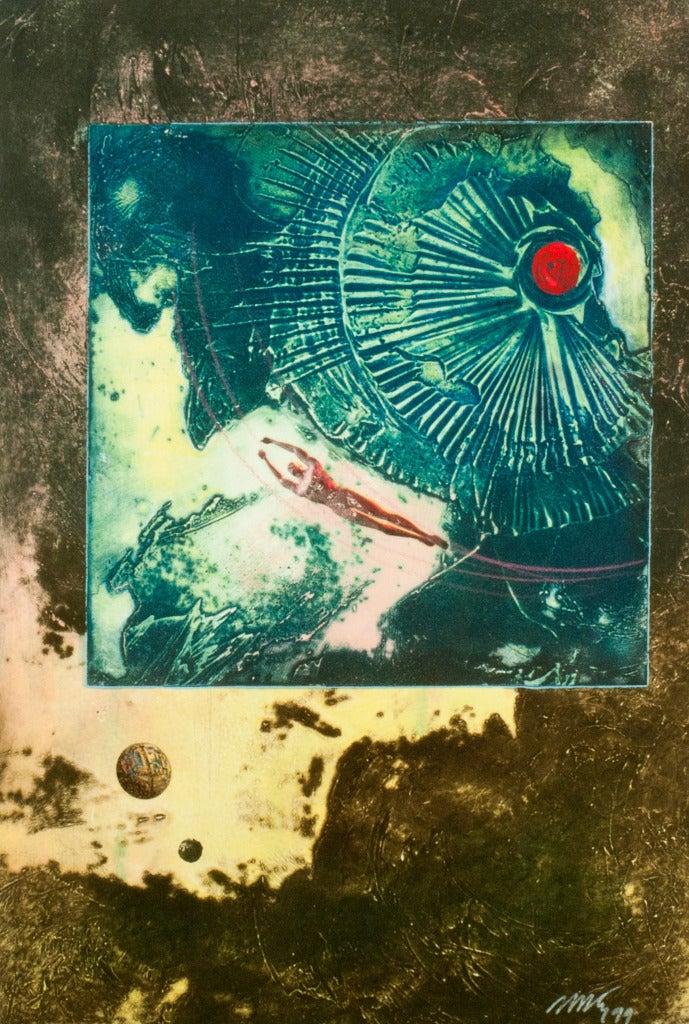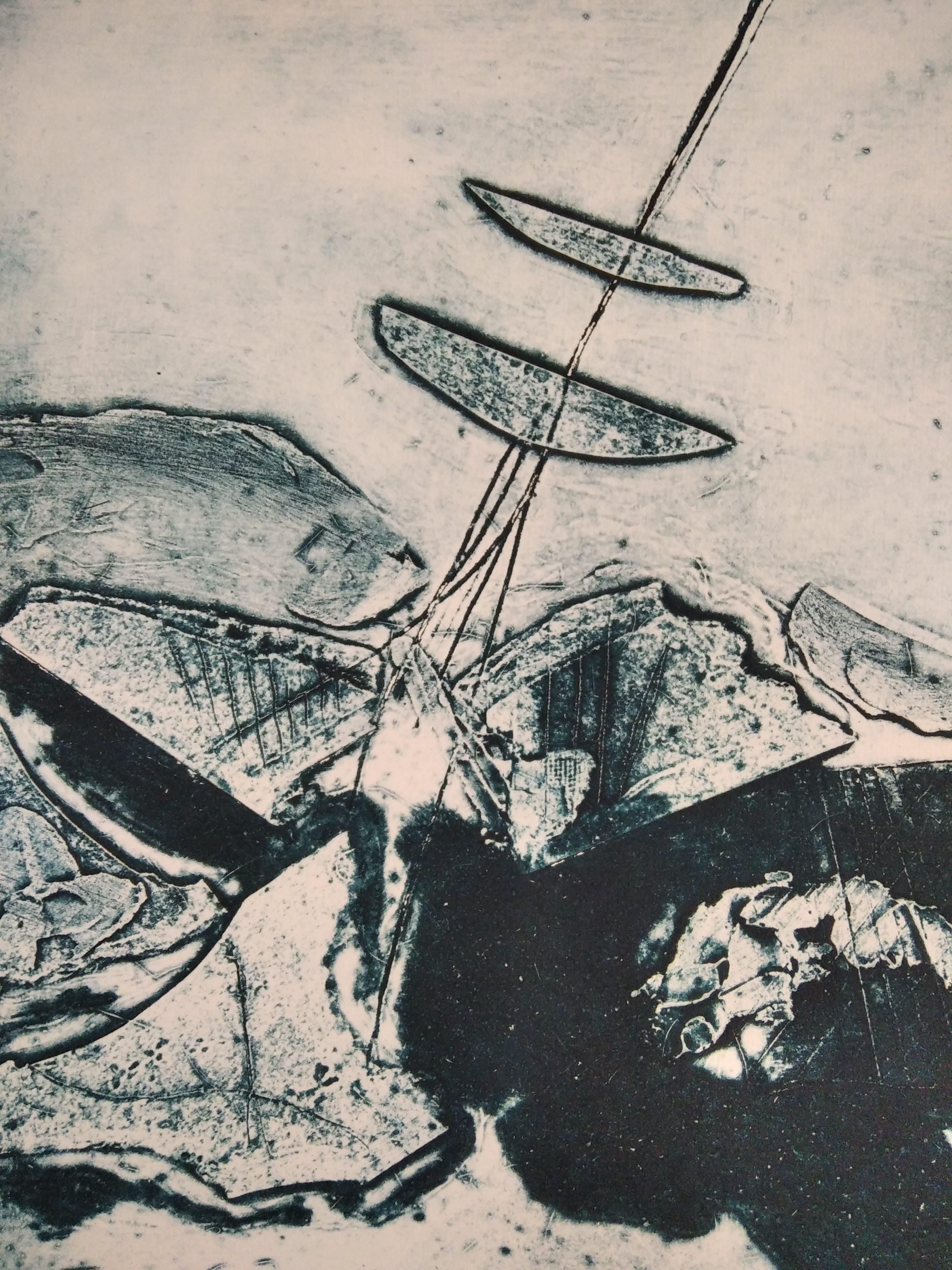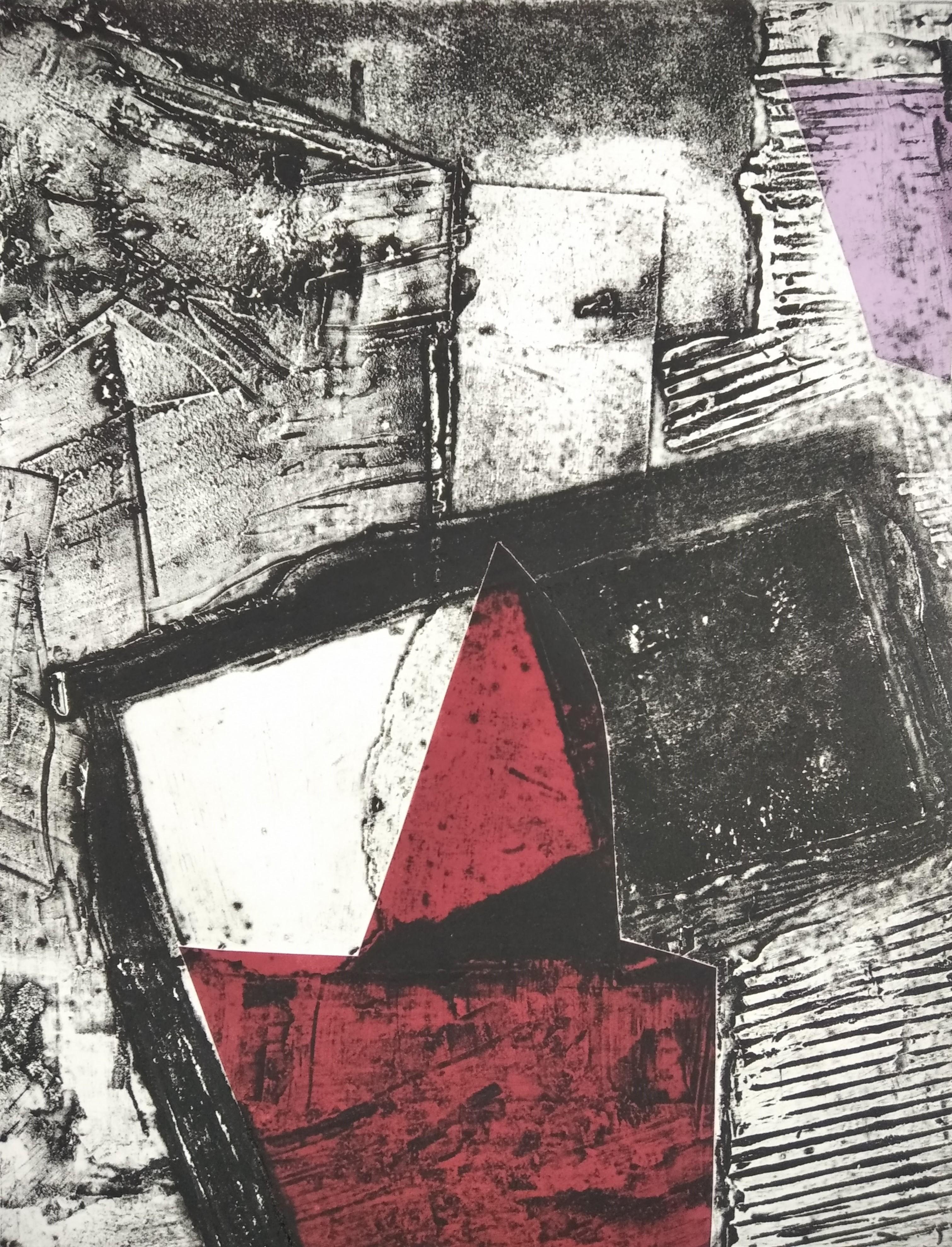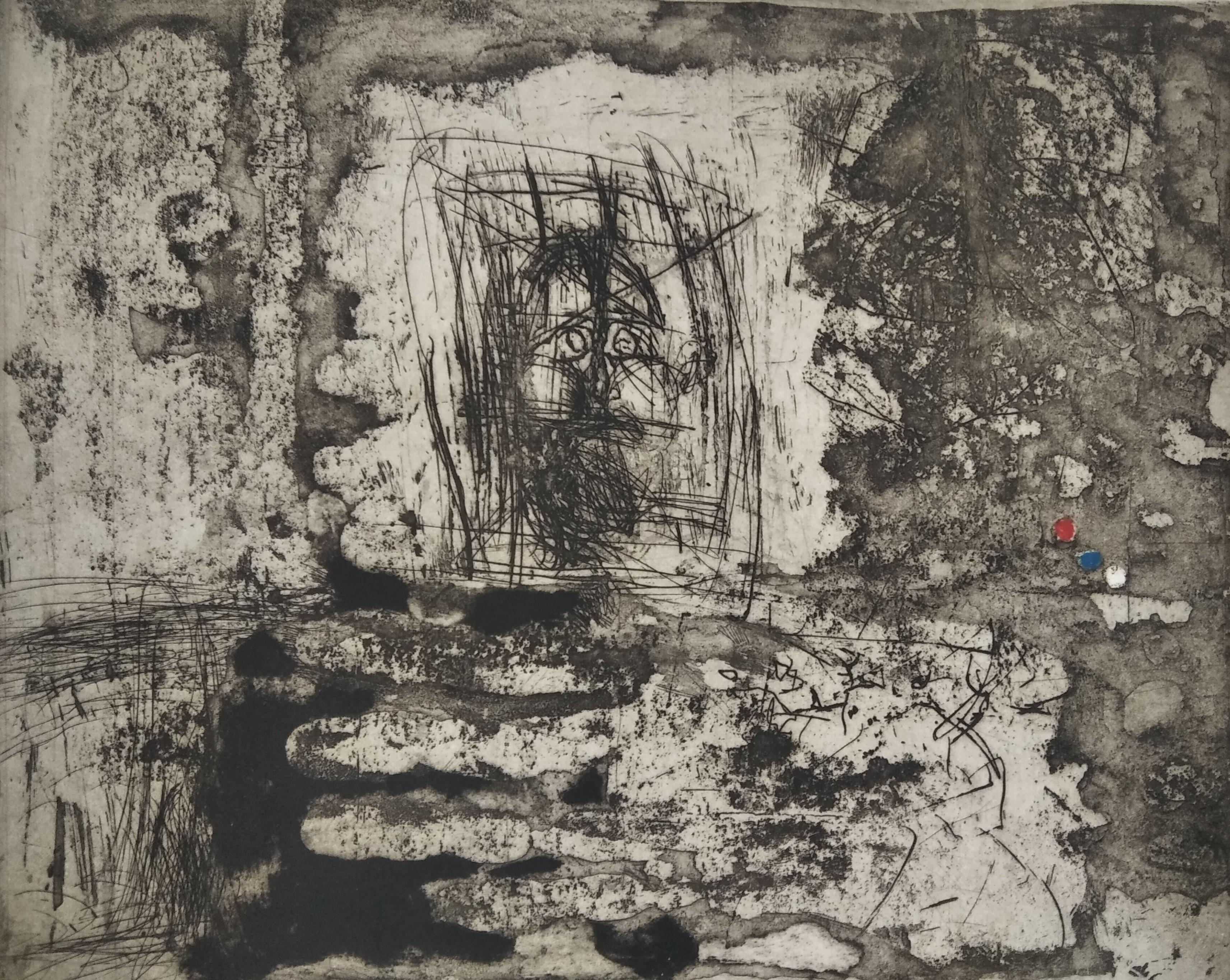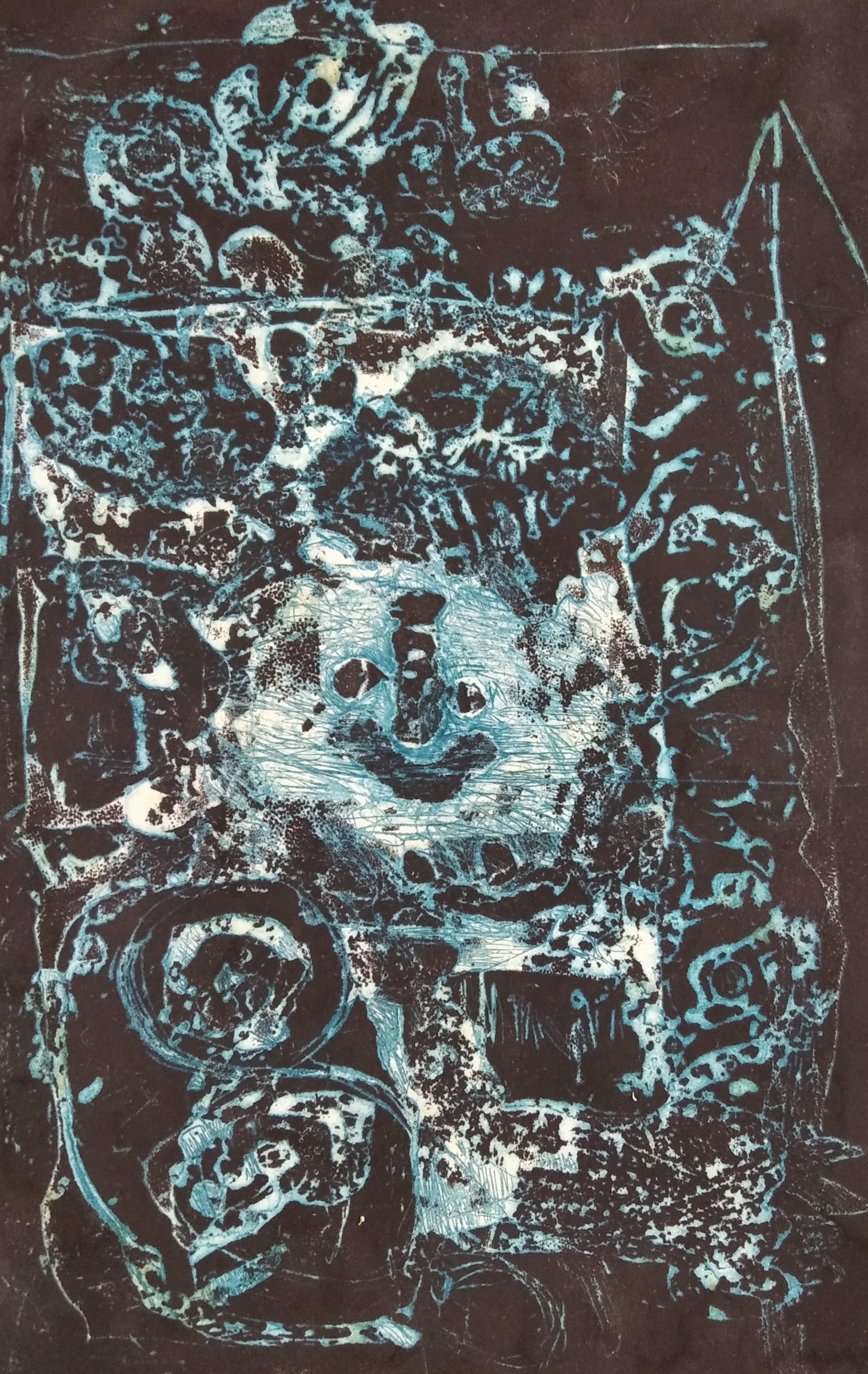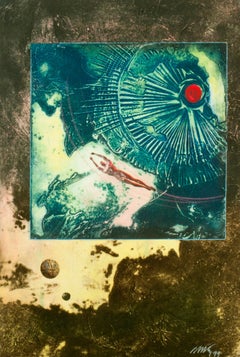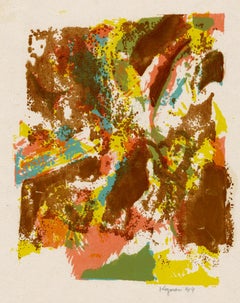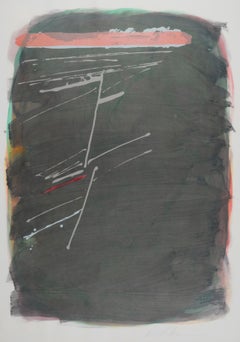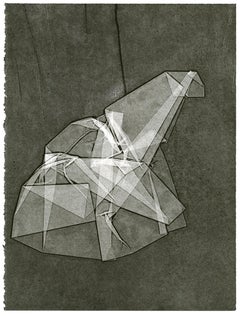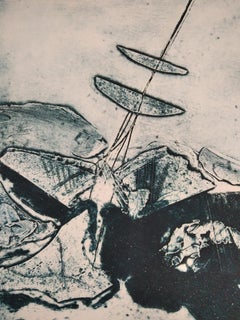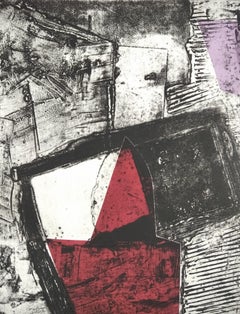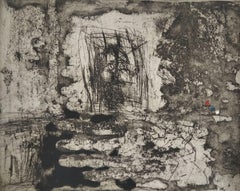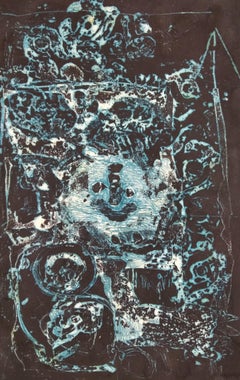Want more images or videos?
Request additional images or videos from the seller
1 of 5
Mikulas KravjanskyUntitled1999
1999
$1,250
£969.21
€1,099.75
CA$1,791.82
A$1,948.35
CHF 1,026.59
MX$23,666.81
NOK 12,906.32
SEK 12,098.63
DKK 8,252.69
About the Item
Signed and dated '99 in white
- Creator:Mikulas Kravjansky (1928, Czechoslovakian)
- Creation Year:1999
- Dimensions:Height: 30 in (76.2 cm)Width: 20 in (50.8 cm)
- Medium:
- Period:
- Condition:
- Gallery Location:Fairlawn, OH
- Reference Number:Seller: FA85271stDibs: LU140120002
About the Seller
5.0
Recognized Seller
These prestigious sellers are industry leaders and represent the highest echelon for item quality and design.
Gold Seller
Premium sellers maintaining a 4.3+ rating and 24-hour response times
Established in 1978
1stDibs seller since 2013
820 sales on 1stDibs
Typical response time: <1 hour
Associations
International Fine Print Dealers Association
- ShippingRetrieving quote...Shipping from: Fairlawn, OH
- Return Policy
Authenticity Guarantee
In the unlikely event there’s an issue with an item’s authenticity, contact us within 1 year for a full refund. DetailsMoney-Back Guarantee
If your item is not as described, is damaged in transit, or does not arrive, contact us within 7 days for a full refund. Details24-Hour Cancellation
You have a 24-hour grace period in which to reconsider your purchase, with no questions asked.Vetted Professional Sellers
Our world-class sellers must adhere to strict standards for service and quality, maintaining the integrity of our listings.Price-Match Guarantee
If you find that a seller listed the same item for a lower price elsewhere, we’ll match it.Trusted Global Delivery
Our best-in-class carrier network provides specialized shipping options worldwide, including custom delivery.More From This Seller
View AllUntitled
By Mikulas Kravjansky
Located in Fairlawn, OH
Signed and dated '99
Provenance:
Touro College, NYC (accession number sticker verso)
Category
1990s Prints and Multiples
Untitled
By Myron Kozman
Located in Fairlawn, OH
Untitled
Screen print, 1941
Signed and dated in pencil lower right
From an unnumbered edition of 6
Condition: Excellent
Image size: 7 1/4 x 5 3/4 inches
Sheet size: 10 x 8 inches
Pr...
Category
1940s Abstract Abstract Prints
Materials
Screen
Untitled
By Dan Christensen
Located in Fairlawn, OH
Untitled
Monotype printed in colors, c. 1980
Signed in pencil lower right (see photo)
Condition: Excellent
Sheet size: 42 x 30 inches
Provenance: Distinguished Midwest Private Collection
SELECTED MUSEUM COLLECTIONS Addison Gallery of American Art, Andover, Massachusetts Albrecht-Kemper Museum of Art, St. Joseph, Missouri Albright-Knox Art Gallery, Buffalo, New York Allen Memorial Art Museum, Oberlin, Ohio Art...
Category
1980s Abstract Abstract Prints
Materials
Monotype
untitled
By Rebekah Wilhelm
Located in Fairlawn, OH
Signed, titled and dated verso.
Created at Zygote Press, Cleveland
Edition: Unique (1/1)
On her creation "I am interested in the possibilities and potentials of communication thro...
Category
2010s Contemporary Abstract Prints
Materials
Monoprint
Ascension
By Maria Deguchi
Located in Fairlawn, OH
Ascension
Etching and aquatint printed in red and gold leaf on Arches France paper
Signed, titled, and editioned in pencil by the artist (see photos)
Edition: 60 of which this number...
Category
1970s Contemporary Abstract Prints
Materials
Aquatint
Enchantment
By Ray H. French
Located in Fairlawn, OH
Signed, dated, titled, and annotated 'Printers Proof' in pencil
References And Exhibitions:
Printed by the master printer John Clemmens.
Exhibited by the Brooklyn Museum in ...
Category
1950s Abstract Prints
You May Also Like
Untitled
Located in Barcelona, BARCELONA
the painting is being offered with a work and authenticity certificate
Category
1980s Abstract Prints
Materials
Engraving
Untitled
Located in Barcelona, BARCELONA
the painting is being offered with a work and authenticity certificate
Category
1980s Abstract Prints
Materials
Engraving
Untitled
By Antoni Clavé
Located in Barcelona, BARCELONA
the painting is being offered with a work and authenticity certificate
Category
1990s Abstract Paintings
Materials
Paper
$1,044
Untitled
By Antoni Clavé
Located in Barcelona, BARCELONA
the painting is being offered with a work and authenticity certificate
Category
1990s Abstract Paintings
Materials
Paper
"Untitled"
By Nahum Tschacbasov
Located in Southampton, NY
Artist proof, aquatint, mixed intaglio engraving by the Russian/American artist, Nahum Tschacbasov. Pencil signed and dated lower right, 1947. Artist Proof. Condition: good; slight...
Category
1940s Surrealist Figurative Prints
Materials
Engraving, Aquatint, Intaglio
$420 Sale Price
20% Off
Untitled Edition 7 of 99
By Fernando de Szyszlo
Located in Miami, FL
Fernando de Szyszlo was a Peruvian painter best known for using pre-Columbian imagery and muted palette. De Szyszlo’s art was an attempt at reinventing Surrealist themes in a Latin A...
Category
20th Century Abstract Prints
Materials
Engraving, Etching
